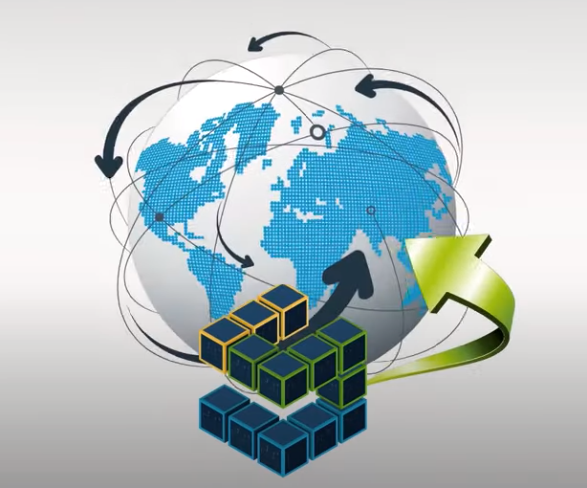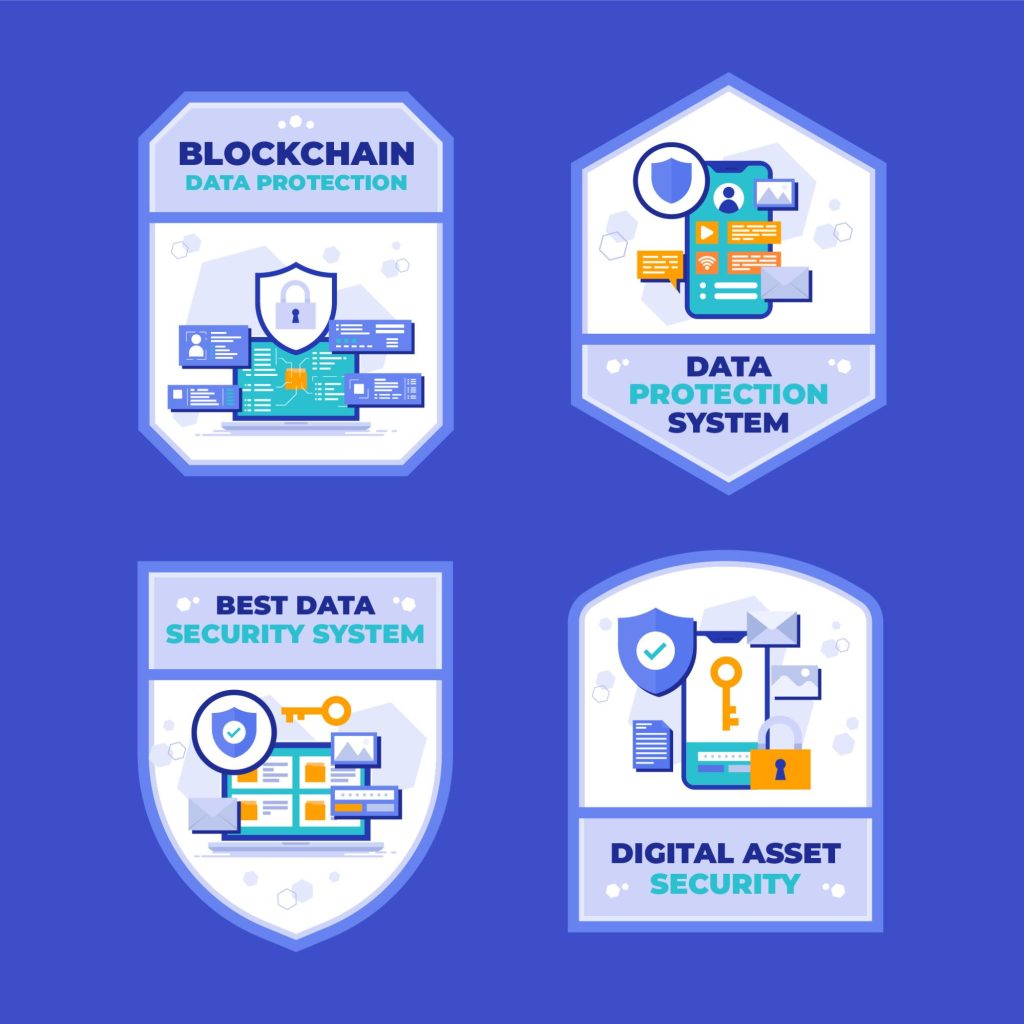Supply Chain Management (SCM) is the strategic orchestration of resources, information, and activities that transforms raw materials into finished products and delivers them to the market. It’s a multi-faceted process involving a meticulous coordination of suppliers, manufacturers, distributors, retailers, and customers. SCM aims to streamline operations, minimize costs, and enhance customer satisfaction.
The traditional SCM model, while effective, has encountered serious challenges in terms of transparency, traceability, and speed of information flow. This is where innovative technologies such as blockchain come to revolutionize the way supply chains function.
Originally conceived as the foundation of digital currencies, blockchain has evolved far beyond these roots. One of its most promising frontiers lies in upscaling and enhancing SCM. So, let’s take a closer look at the transformative potential of blockchain in this realm.
Blockchain Basics
At its core, a blockchain is a distributed ledger technology (DLT) that records transactions across a network of computers. Unlike conventional ledgers, which are centralized and controlled by a single entity, DLT operates on a peer-to-peer network. This means that each node in the network (computer) has a copy of the register, and transactions are recorded through a consensus mechanism.
Three pillars DLTrests on include:
- Blocks: These are the individual units that contain transaction data. Each block typically contains a batch of transactions and is linked to the previous block in a chronological chain;
- Transactions: These are records of exchanges between participants within the network. Transactions can involve the transfer of cryptocurrency, digital assets, or any data that needs to be recorded;
- Decentralization: Unlike centralized systems, where a single authority has control, DLT operates on a decentralized network. This means that no single entity has complete authority over the ledger, making it more resistant to manipulation.
Key Blockchain Characteristics
Digital ledger technology has several critical characteristics that make it a powerful tool for a wide range of applications including supply chain management:
- Transparency: All transactions recorded on the DLT are visible to all participants in the network. While the identities of the participants may be pseudonymous, the transaction details are accessible;
- Immutability: Once data is recorded on the DLT, it cannot be changed or deleted. This feature ensures a high level of trust and security;
- Decentralization: The absence of a central authority means that no single entity has control over the entire network. This reduces the risk of manipulation or fraud. In e-commerce, this concept is particularly valuable, as it underpins the security and transparency of magento development, ensuring that online businesses can operate with trust and reliability;
- Security: The cryptographic algorithms used in blockchain technology provide a robust level of security. This makes it highly resistant to hacking or unauthorized alterations.
Given these features, DLT has a lot to offer in terms of transparent, efficient, and secure operations. Hence, as industries continue to explore and adopt blockchain, they reveal its transformative potential step by step.
Blockchain in Supply Chain Management
The Verified Market Research stated that blockchain adoption in the SCM market was around $269 million in 2021, and it was expected to hit the $3154 million mark by 2028, showing immense growth. So, DLT tech confidently permeates the field of supply chain management (SMC) to bring a complex multi-stage process to a new quality level and make it more efficient, transparent, and controllable.
The integration of DLT into supply chain management brings forth a host of advantages:
- Enhanced trust and transparency: Blockchain’s immutable register builds trust among stakeholders by providing a transparent view of the entire supply chain process;
- Reduced costs and inefficiencies: Automation through smart contracts and real-time tracking minimizes manual intervention, reducing operational costs and inefficiencies;
- Improved security: The cryptographic nature of DLT ensures that data is secure, reducing the risk of fraud and unauthorized access;
- Faster and more efficient transactions: Smart contracts enable automated, self-executing transactions, expediting processes and reducing the time required for contract execution, and optimizing contract management;
- Strategic decision-making: Access to real-time, accurate data allows for more informed and timely decision-making, enabling businesses to respond quickly to market demands and disruptions.
How Blockchain Amplifies Transparency
There are three major touchpoints where digital ledger technology is implemented to improve transparency across the supply chain.
Immutable record Keeping and Audit Trails
DLT’s immutability ensures that every transaction, from procurement to distribution, is permanently documented. In the context of SCM, this means that each step of a product’s journey is etched into the ledger, providing an indelible record of its history.
This characteristic is invaluable for auditing purposes. Regulatory compliance and quality control processes become more efficient and reliable, as auditors can be sure that the information they’re examining has not been tampered with. It significantly bolsters transparency across the whole chain, building trust among stakeholders and assuring consumers of the authenticity and integrity of products.
Real-Time Goods Tracking
In DLT, each transaction is time-stamped and linked to the previous one, creating a chronological and transparent history. Hence, at any given moment, stakeholders can pinpoint the exact location and status of a product in the supply chain.
This capability is particularly helpful in industries like pharmaceuticals and food, where rapid response to recalls or quality issues is imperative. With blockchain, companies can identify affected batches or shipments much faster. Additionally, consumers will be more confident in the accuracy of product information, knowing they can trace a product’s journey back to its source.
Smart Contracts for Automated Processes
In SCM, self-executing contracts translate to automated processes triggered by predefined conditions. For instance, a smart contract could automatically release payment to a supplier once a shipment is confirmed as received.
Such a level of automation not only speeds up processes but also reduces the risk of errors or disputes. It eliminates the need for intermediaries and reduces the reliance on manual record-keeping. For example, in a shipping process, as soon as a delivery is confirmed, the smart contract could trigger an update in the DLT, indicating that the product has moved to the next stage of the supply chain.
How Blockchain Improves Efficiency
DLT allows for increased efficiency by optimizing processes and introducing a certain degree of automation. This, in turn, results in cost savings while leading to enhanced competitiveness and customer satisfaction.
Reduced Paperwork and Manual Processes
Traditional supply chains often rely on extensive documentation for tasks such as recording transactions, verifying authenticity, and ensuring compliance. Just like CMMS software solutions help manage assets, DLT helps make routine SCM processes more streamlined and automated.
For instance, in international trade, customs declarations, bills of lading, and other documents are crucial but often require extensive administrative effort. Blockchain’s digital register eliminates the need for physical paperwork and instead offers a secure, digital record accessible to all relevant parties. This not only saves time but also reduces the risk of human error.
Minimizing Discrepancies and Mistakes
The immutable DLT nature drastically reduces the likelihood of discrepancies and errors in supply chain processes. In traditional systems, data can be subject to manual entry mistakes, miscommunications, or even deliberate tampering.
With DLT, the accuracy of recorded data is significantly higher. This is particularly important in scenarios where precision and integrity are paramount, such as in pharmaceuticals or high-value goods. Stakeholders can be sure the information they rely on for decision-making is accurate and reliable.
Streamlined Transactions
Smart contracts enable automated payments when predefined conditions are met. This reduces the need for intermediaries, such as banks or payment processors, optimizing the financial aspect of the supply chain.
For example, in a global supply chain, a smart contract can be set up to automatically trigger a payment to a supplier once a shipment is confirmed as received. It will accelerate the payment process while reducing the risk of disputes or delays associated with manual invoicing and payment procedures. Similar to help desk software, DLT helps reduce the burden on support teams.
Real-Life Examples of Successful Blockchain Applications in Supply Chain Management
To demonstrate how businesses can leverage DLT to achieve better transparency and efficiency in their SCM systems, here are a few examples of companies that have successfully adopted blockchain in their supply chain operations:
- IBM’s Food Trust network employs DLT to enhance transparency and traceability in the food supply chain. It brings together major players in the industry to create a secure, shared platform for tracking and tracing the journey of food products from farm to table. This initiative has seen notable success in reducing the time taken to trace the origin of food products, aiding in quicker and more targeted recalls, and ultimately building trust among consumers;
- A global retail giant Walmart utilizes blockchain to track the movement of fresh produce and other perishable goods from the supplier to the store shelves. This way, the company has significantly reduced the time taken to trace the origin of products, enhancing food safety and quality control measures;
- Everledger employs blockchain to track the provenance of diamonds, ensuring they are conflict-free and ethically sourced. This solution has significantly enhanced transparency and trust in the diamond supply chain, providing consumers with assurance about the ethical sourcing of their purchases;
- Maersk, one of the largest shipping companies globally, partnered with IBM to develop TradeLens, a blockchain-based platform for global trade. This platform aims to optimize the documentation and information-sharing processes in international shipping. By minimizing paperwork and manual processes, TradeLens has led to quicker cargo clearance times (40% reduction), minimizing delays and inefficiencies in global trade.
To Conclude
The potential of blockchain in SCM is profound and far-reaching. It represents a paradigm shift in how we conceive, execute, and optimize supply chain operations. By fundamentally altering the way data is recorded, shared, and verified, blockchain addresses some of the most critical pain points in SCM such as transparency and efficiency issues.
This journey towards a more transparent and efficient supply chain powered by digital ledger technology is not merely an aspiration, it’s a tangible reality shaping the future of industry and commerce worldwide.




